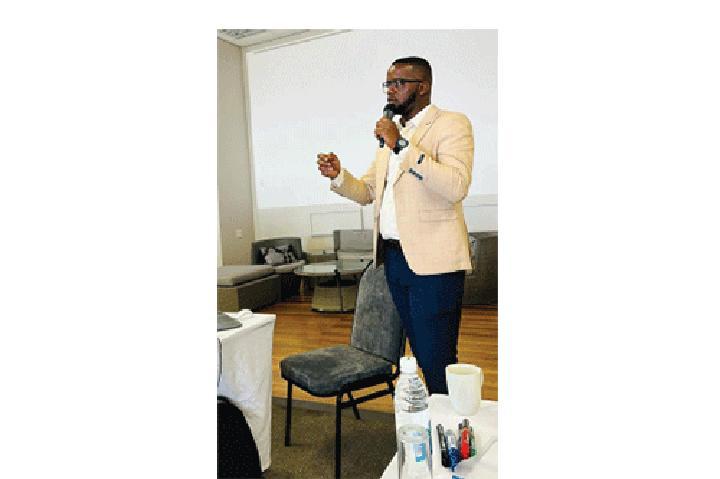Africa-Press – Namibia.
The mandate to educate and inform citizens has been strenuous for community media due to little to no resources and support from government.
To mitigate this, the Namibia Community Media Network (NCBN) has urged stakeholders not to turn the Community Media Policy Framework into another white elephant.
The United Nations Educational, Scientific and Cultural Organisation (UNESCO) and the Ministry of Information and Communication Technology jointly hosted a workshop on Monday to align the policy framework with the National Planning Commission’s recommendations.
NCBN board chairperson Levi Katire, while calling on the national advertising budget to be streamlined to community media, urged government ministries and institutions to have a deliberate allocation of content placement on community media.
He urged sector players to comply and carry out the infrastructure-sharing policy with clear intent and compliance to benefit the sector.
“The government can make annual budgetary allocation accessible to community media for operations using grants or loans. Our mother ministry can establish a scheme such as the equipment aid scheme of the ministry of trade, thus giving community media access to support for trending and quality equipment,” he added.
Katire encouraged stakeholders to move swiftly towards reigniting the network body.
With the adoption of the policy surfacing, each media outlet must restructure and strengthen its governance and operations.
“We must improve our levels of compliance. We must unify the sector and capitalise on existing and upcoming opportunities,” he noted.
The workshop aimed to align the draft policy framework (CMPF) with recommendations from the NPC and strengthen sector-wide coherence, governance and capacity among Namibia’s community media stakeholders.
Once the NPC has approved the aligned framework, it is expected to progress to Cabinet for endorsement.
UNESCO representative to Namibia Eunice Smith said, “UNESCO is pleased to be supporting the policy framework”.
Among other things, their support is to ensure that the media and citizens can hold the government accountable for the promises they make.
On the other hand, deputy chief advisor for national development at the National Planning Commission (NPC) Ned Sibeya said the focus of the Community Media Policy Framework (CMPF) on governance and capacity building will empower community media to contribute effectively to education, cultural preservation and economic growth, the key pillars of the nation’s progress.
“Community media serves as the heartbeat of our society, amplifying the voices of the marginalised, fostering dialogue and promoting inclusivity across urban and rural Namibia.
The draft CMPF represents a vital step toward ensuring these voices are not only heard but also supported through coherent governance structures and enhanced capacity,” he stated.
Meanwhile, Communications Regulatory Authority of Namibia (CRAN) regulatory and corporate legal services executive Josephine Shigwedha said that for community media to flourish, it requires a regulatory environment that balances freedom of expression with responsible broadcasting, ensures access to communication platforms, and provides clarity on licensing procedures.
“At CRAN, we recognise our vital responsibility to create a regulatory landscape that supports the development and sustainability of community media. Our approach is guided by principles of transparency, inclusivity and adaptability,” she underlined.
She added: “We are dedicated to addressing challenges such as limited resources, technological disparities and regulatory literacy, which can hinder community media development”.
For More News And Analysis About Namibia Follow Africa-Press






